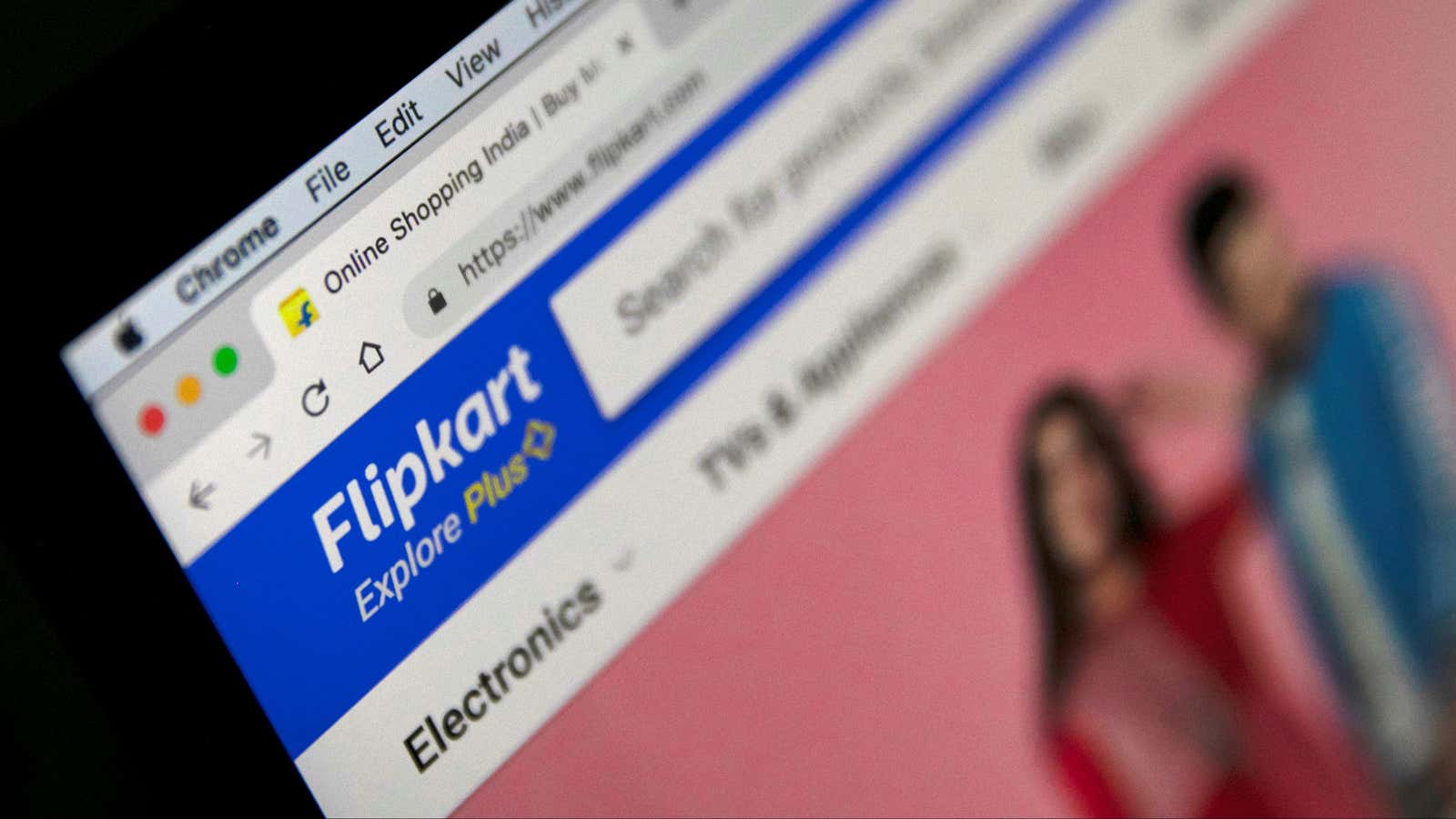India’s homegrown e-commerce major Flipkart is driving forward on the road to electrification of its fleet.
Yesterday (June 27), the Walmart-owned company announced in a statement that 40% of its last-mile delivery vans will run on electricity by March next year.
A Flipkart spokesperson refused to reveal how many vans would need to go electric to meet that goal. However, by the end of 2019, the number of electric vans would have risen from the current 18 to 160, the statement said. To offset the near-complete absence of electric vehicle (EV) infrastructure in India, the company will set up charging stations at its warehouses, a spokesperson told Quartz.
Over the last few months, Flipkart has been conducting pilots with undisclosed players in the EV industry. ”Our team is working with local ecosystem partners to help them co-design concepts for electric vehicles best suited for the growing e-commerce industry,” Flipkart Group CEO Kalyan Krishnamurthy said in a statement.
Flipkart’s delivery fleet includes both motorcycles and vans. Though the firm also ran a pilot with 30 electric two-wheelers in Bengaluru, it is not scaling up electrification of the motorcycles in its fleet.
Electric vans are more viable as they can cover longer distances of about 100 kilometres on a full charge and carry many more packages, the spokesperson said. Additionally, unlike vans, the motorcycles are personally owned by Flipkart’s delivery workers.
The Bengaluru-based firm is the latest among fleet operators to make a shift away from fossil fuels. Food-delivery startups Swiggy and Zomato have also set similar targets for electrification of their delivery fleet.
